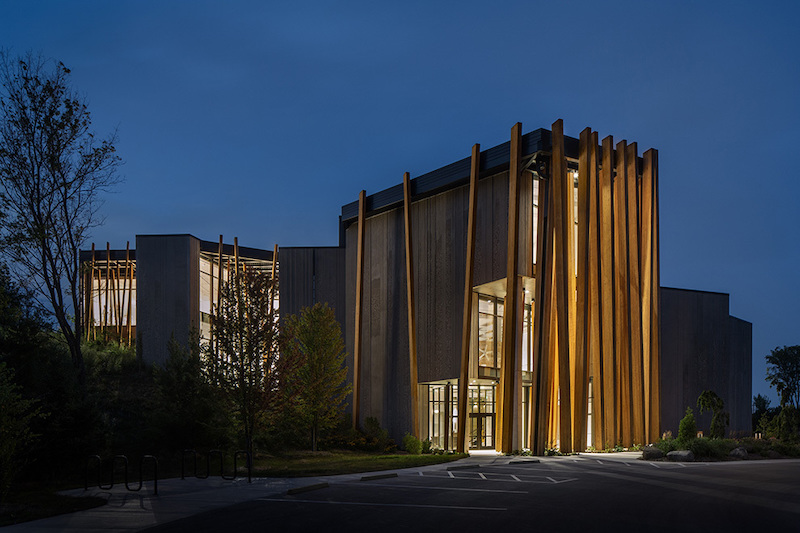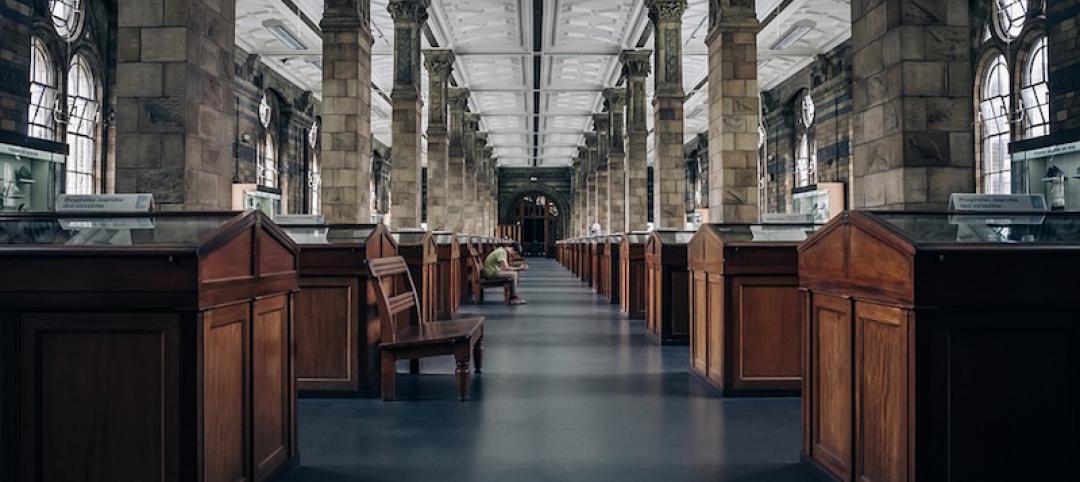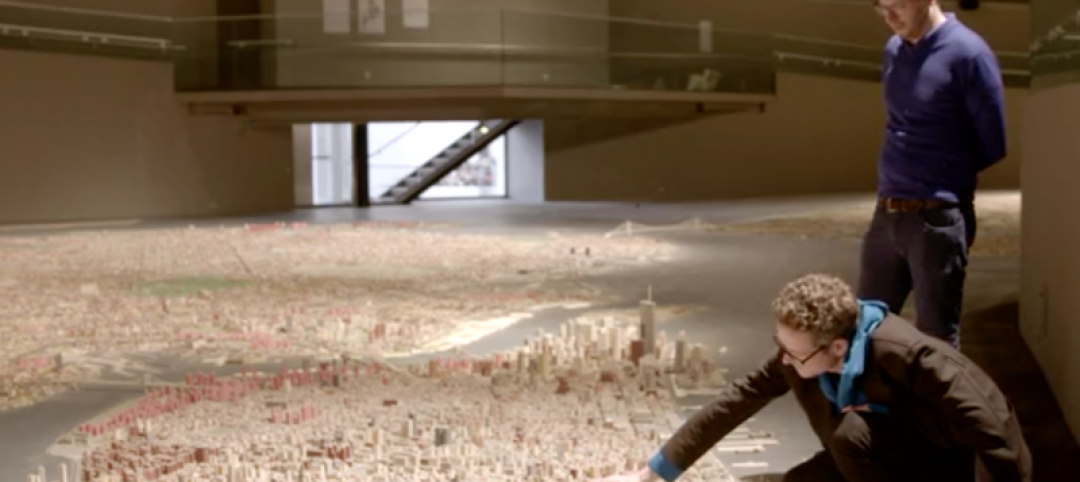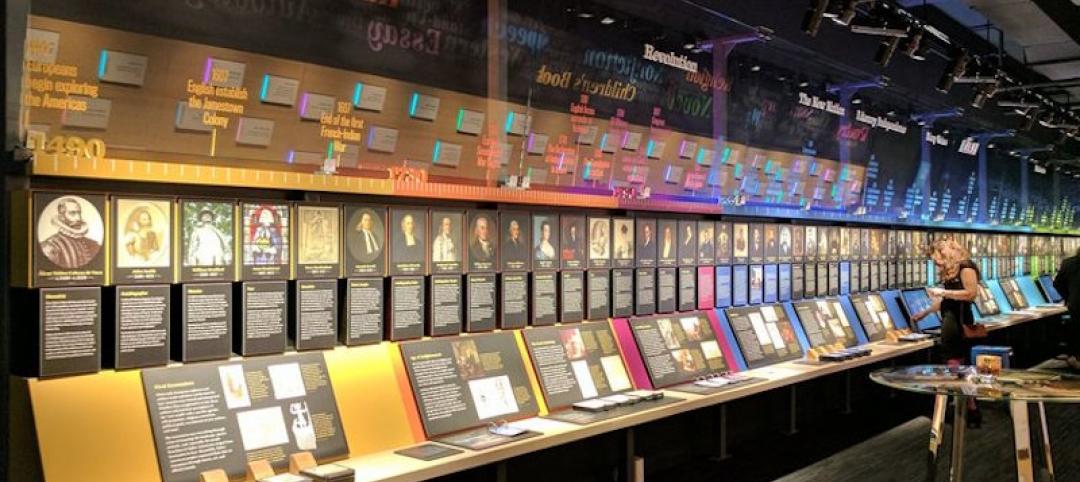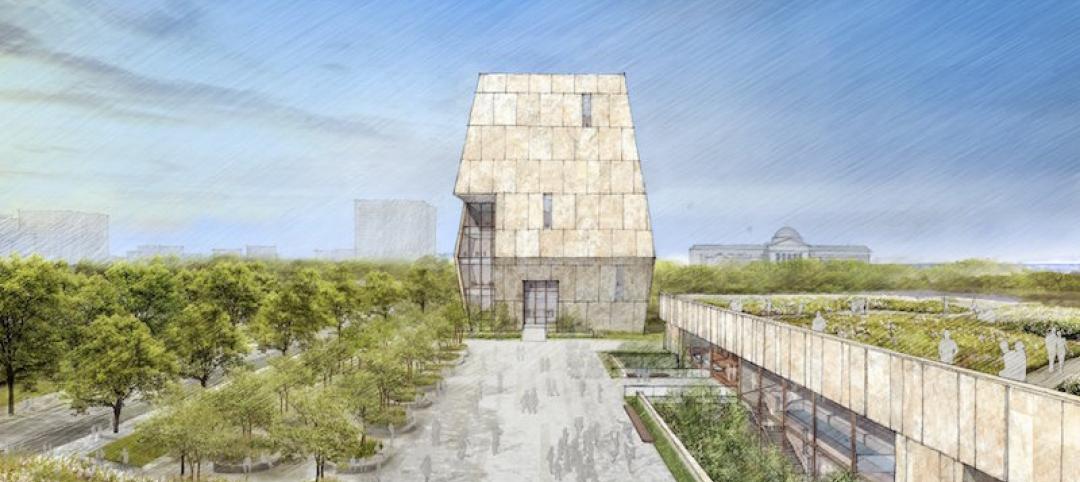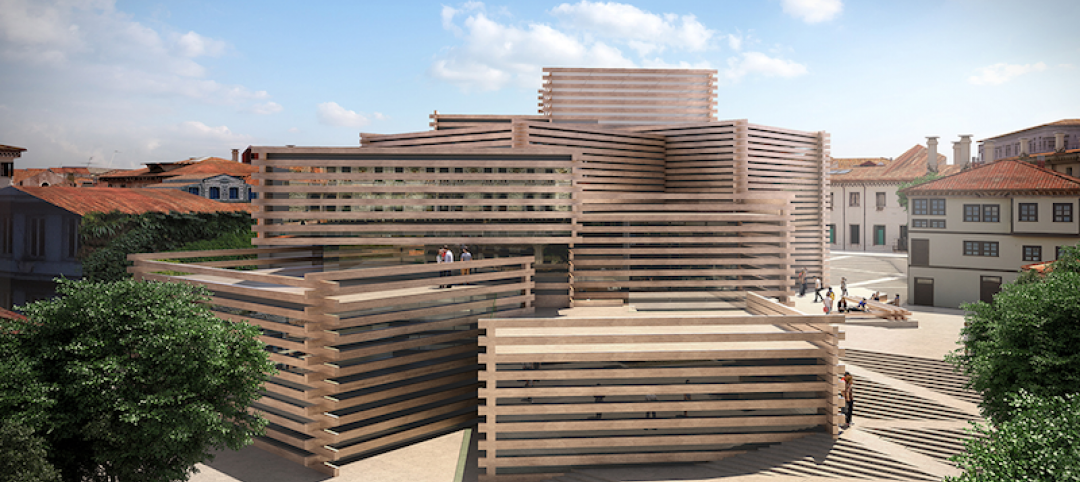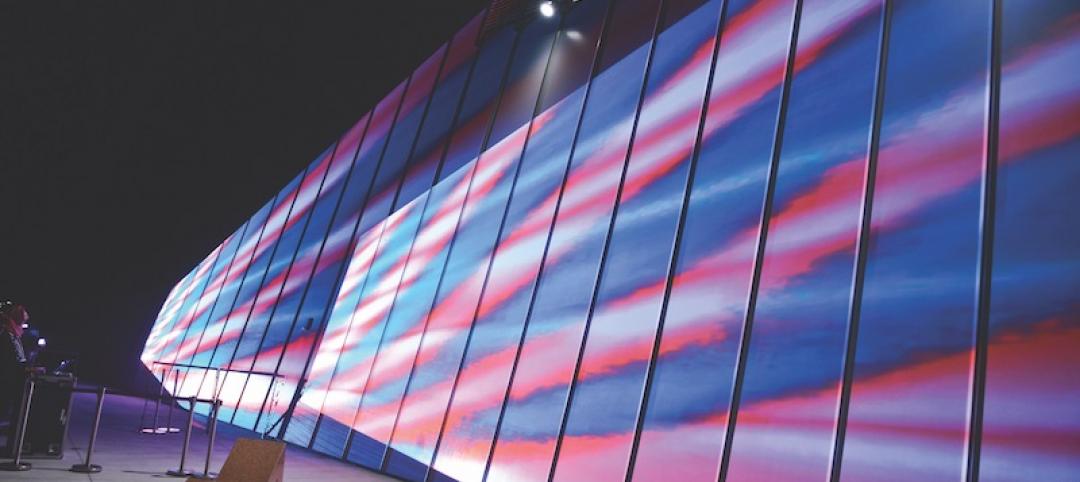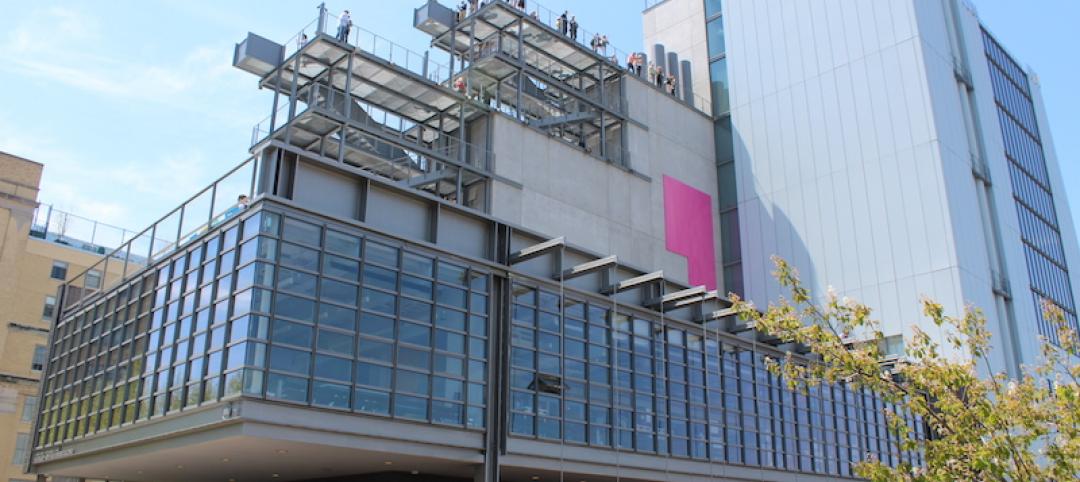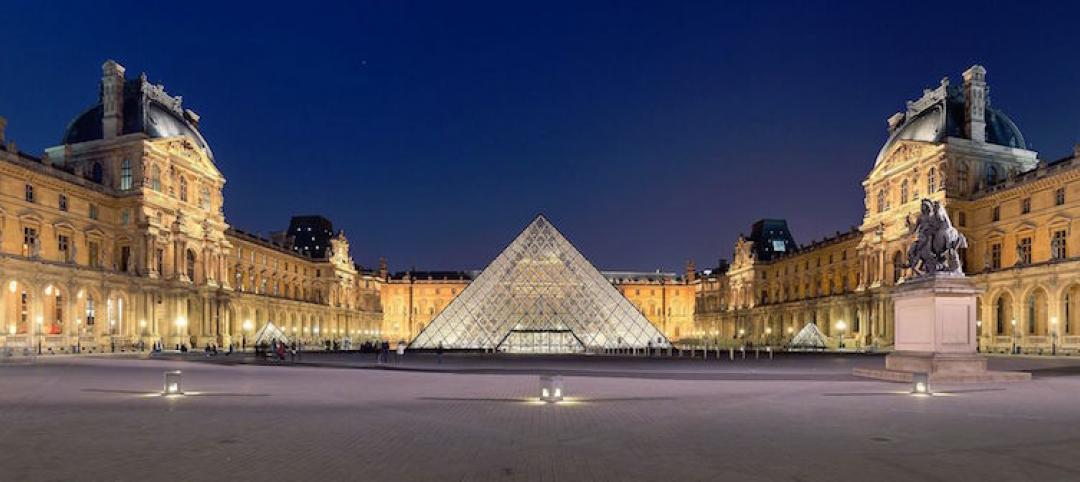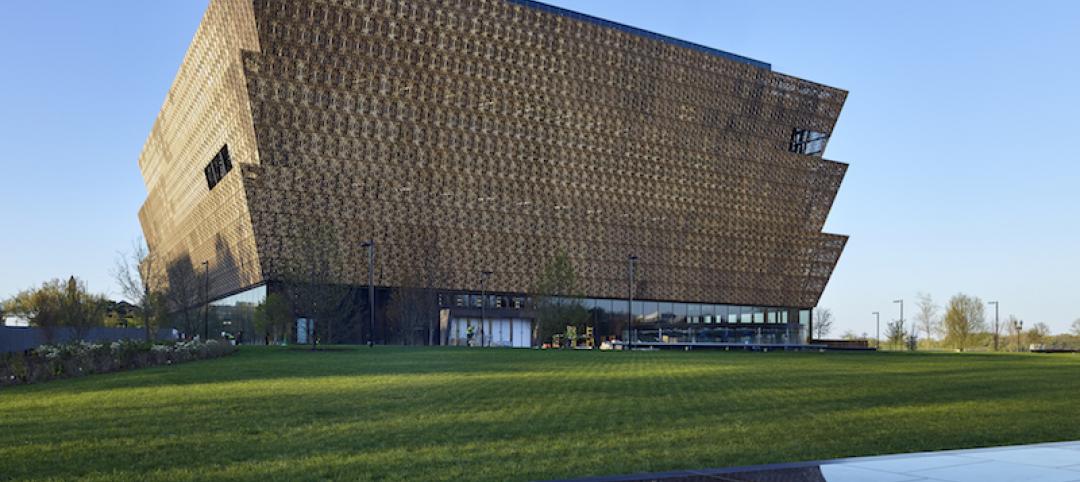The Art Preserve of the John Michael Kohler Arts Center, a 50,000-sf, three-story building in Sheboygan, Wisc., will be the world’s first museum dedicated to artist-built environments. Artist-built environments are an art form created by people who transform their homes and yards into multifaceted works of art.
The Art Preserve is located within the natural setting of a 160 acre nature preserve on Sheboygan’s west side. The building will provide exhibition space, visible storage, and preservation of more than 35,000 works of art by over 30 artists. Also included are an education area, a library, a study collection, and other spaces that will provide access to the collection for researchers, tour groups, and the public. Exhibition spaces will present artists’ work in a variety of ways with the goal to be as true to the artists and show as much of the collection a possible.
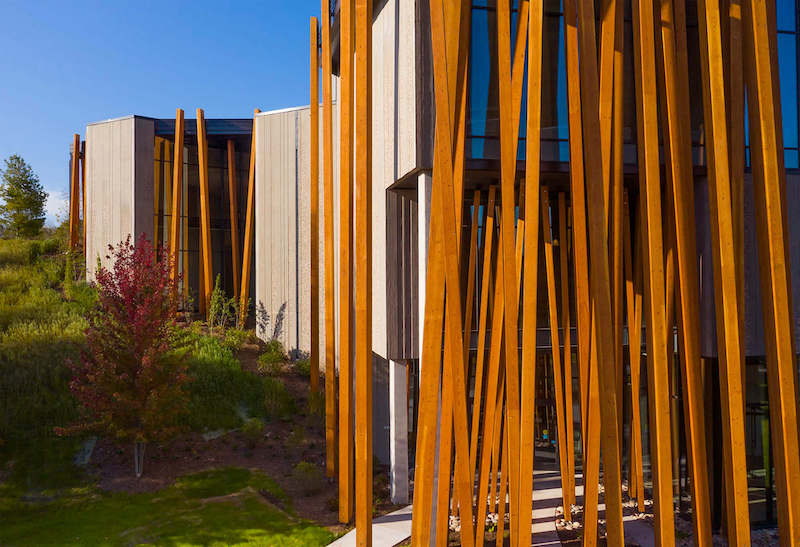
With a design that embraces the collection’s connection to nature while balancing the need to preserve the work, the building is constructed out of materials prevalent on the site such as rocks, sticks, and earth. The concrete structure is comprised primarily of regional river rock, providing the space with a large thermal mass to balance interior temperatures. The asymmetric shape of the building climbs the hillside and connects the lower entry meadow to the upper secret meadow by bridging the wooded hillside.
Embedding the building in the hillside helps it to maintain a constant temperature, moderating the heating and cooling load of the building. It also helps in creating a different feel for each of the floors as the visitor makes their way up and down the structure. Level 1 feels of the earth with its heavy river rock walls whereas level 3 opens to the sky, has views out to the tree canopies beyond, and allows access to the upper meadows of the site.
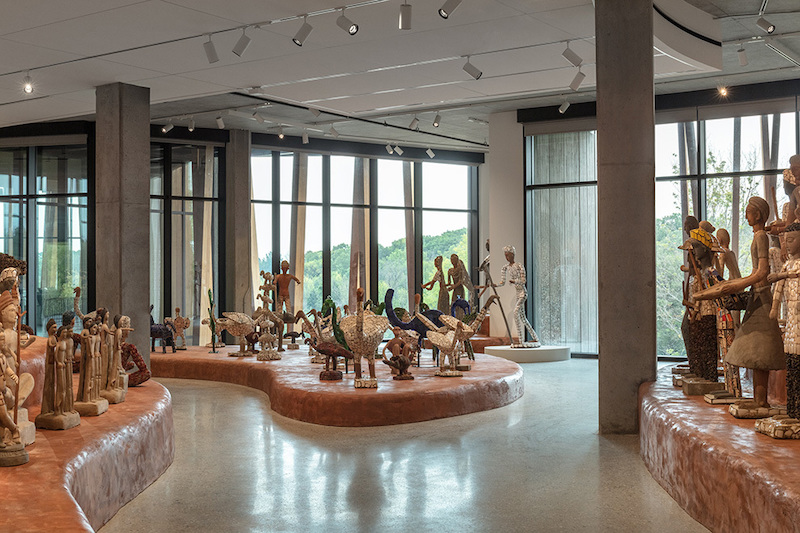
Visitors enter the main entry through a forest of timbers that serve three purposes: they assist with solar shading of the museum’s largest southern windows, they echo the hillside trees in rhythm and stance, and they create a procession through the woods into the museum.
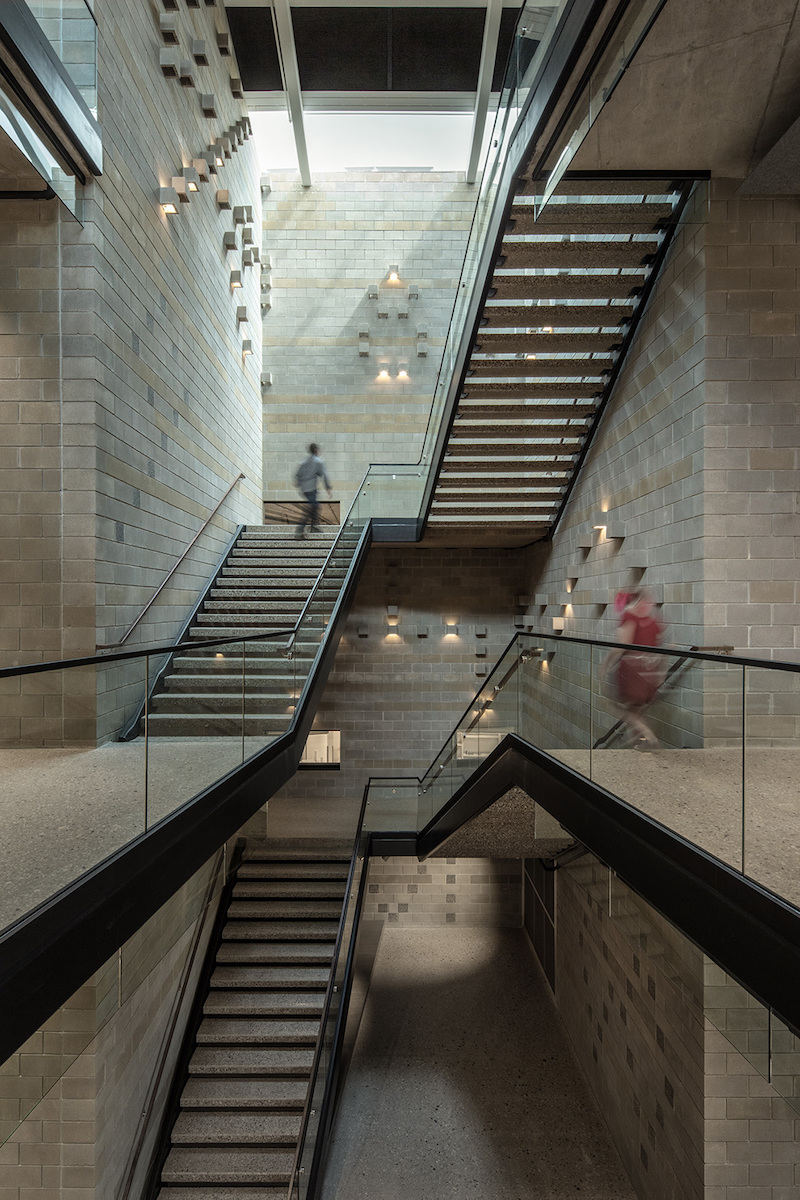
Arup collaborated with Tres Birds to design optimal environments for art preservation while keeping sustainability and patron experience in mind. These environments include:
• A lighting scheme with motion-sensing LEDs designed to protect artwork, save energy, and make the space more inviting for patrons
• Sound absorbing treatments to enhance acoustic experience and mitigate noise, especially during lively hours or docent tours
• Tightly controlled environment for air quality to prevent mold or corrosion and preserve the artworks
• High-performing building envelope, including careful window placement and a sunken northern façade, as well as energy efficient mechanical systems to endure the cold Wisconsin winters while conserving energy.
The museum opened to the public on June 26.
Related Stories
Museums | May 25, 2017
The museum as workspace
Many museum staff are resistant to the idea of open offices.
Architects | May 23, 2017
Queens Museum exhibit shows New York City as it could have been
The installation will showcase 200 years worth of unrealized Big Apple projects via original drawings, renderings, newly commissioned models, and 3D visualizations.
Museums | May 18, 2017
American Writers Museum opens on Chicago’s Michigan Avenue
Amaze Design designed the 10,000-sf space.
Cultural Facilities | May 4, 2017
Obama Foundation reveals first look at the Obama Presidential Center
The design comprises three buildings set in the public space of Jackson Park on Chicago’s South Side.
Art Galleries | Apr 21, 2017
The Odunpazari Modern Art Museum pays homage to Ottoman Empire era architecture
The wooden façade is a link to the history of the area as a wood market.
Art Galleries | Apr 14, 2017
Activating exteriors as gallery space
Owners would like to get more value from their exterior spaces. One architecture firm details how it made that happen for the new Whitney Museum.
Museums | Jan 19, 2017
Turning museums inside out: White paper addresses the value of exterior gallery space
Many contemporary museum designs are beginning to utilize the exterior wall space to display art that can help attract new audiences.
Museums | Dec 15, 2016
The design of the Shanghai Planetarium draws inspiration from astronomical principles
Housed within the 400,000-sf building will be the world’s largest planetarium theater.
Museums | Dec 15, 2016
The Grand Louvre - Phase I honored with AIA Twenty-five Year Award
The award recognizes an architectural design that has stood the test of time for 25 years.
Sponsored | Museums | Dec 1, 2016
Monumental museum features Fluropon to highlight heritage and high-esteem
The building is an important landmark for the nation, and is built on the last available spot on the National Mall in Washington D.C.


